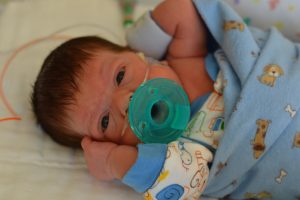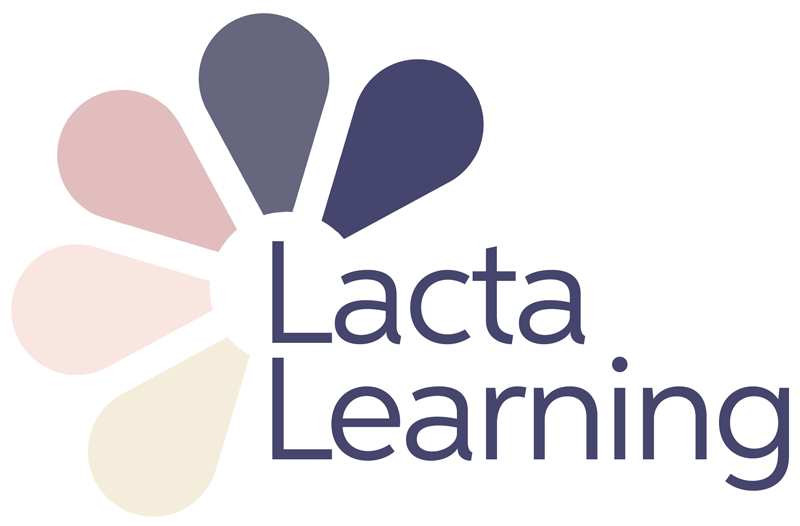From Barbara Robertson:
How are NEC and breastfeeding connected? They aren’t really. But NEC and formula feeding are.
A jury on Friday, July 21st, 2024, found that Abbott Laboratories’ specialized formula for premature infants caused an Illinois girl to develop a dangerous bowel disease, and ordered the healthcare company to pay $495 million in damages.
“Illinois resident Margo Gill, who brought the case against Abbott, alleged that the company failed to warn that its formula could cause a potentially deadly disease called necrotizing enterocolitis (NEC) in premature babies. The jury awarded her $95 million in compensatory damages and $400 million in punitive damages.
“The article says “Abbott spokesman Scott Stoffel said that specialized formulas and fortifiers, like the one in this case, are among the only available options to feed premature infants.”
This is very miss-leading. Now human donor milk and human milk human milk fortifier are available for most babies. People say they cost more than the artificial formula products but not as much as the risk of a hundreds of thousands of dollars it takes to cover the medical costs of a baby who develops NEC.
The article continues, “Companies need to be honest about their products, about the good and the bad,” Gill’s attorney, Jack Garvey, said. “When there is a risk of using a baby formula for preterm infants, parents have a right to know what the problems are.”
This is exactly what are podcast is about. Informed consent. Jennifer Canvasar was also not informed of the risks of formula use with her preterm twins. Sadly, one of them died because of it.
“NEC, which causes the death of bowel tissue, mostly affects premature newborns and has a fatality rate of between 15% and 40%. Gill’s child, Robynn Davis, who developed NEC after being given Abbott premature infant formula while in a neonatal intensive care unit in 2021, survived, but suffered irreversible neurological damage because of her illness and will require long-term care.”
Again, sadly, babies who survive NEC usually have severe long term, expensive health consequences.
“Close to 1,000 lawsuits have been filed against Abbott, Enfamil formula maker Reckitt Benckiser or both in federal or state courts. More than 500 are centralized in an Illinois federal court, with others pending in Illinois, Missouri and Pennsylvania.” Good. This will hopefully make them more transparent about the risks of their products.
“The lawsuits claim that the companies did not warn doctors that infants receiving formula have a greater risk of NEC compared to infants who are breast-fed or given donor milk or human milk-derived formula. Reckitt, like Abbott, has denied the claims.”
“The first lawsuit to go to trial, against Reckitt in Illinois, ended with $60 million jury verdict in March. Reckitt is appealing that verdict and has argued that the plaintiff’s case relied on unsound expert testimony.”
“The NEC Society, a patient-led non-profit organization working to combat the disease, has criticized the lawsuits, saying that “feeding decisions should be made at patients’ bedsides, not in courtrooms.”
“The NEC lawsuits are separate from ongoing litigation against Abbott over the shutdown of its Sturgis, Michigan, plant and subsequent recall of batches of baby formula for possible contamination, which contributed to a nationwide formula shortage in 2022. There have been no trials in those cases.”
On this podcast Barbara and Barb are honored to have a very special guest. Jennifer Canvasser, founder of the NEC Society who speaks out about the importance of human milk for premature babies and why her mission is so important and close to her heart.
WHO Feeding Guidelines state that ” Only under exceptional circumstances can a mother’s milk be considered unsuitable for her infant. For those few health situations where infants cannot, or should not, be breastfed, the choice of the best alternative – expressed breast milk from an infant’s own mother, breast milk from a healthy wet-nurse or a human-milk bank…” To read more on these guidelines follow link to page 7, #18 and #19.
AAP Breastfeeding and the use of human milk guidelines also state that premature infants should be getting an exclusive human milk diet as it significantly reduces the risk for NEC.
Exclusive human milk diet reduces the rate of NEC (necrotizing enterocolitis) by 80% according to this analysis of research studies.
Please check out HMBANA.ORG (Human Milk Banking Association of North America) and consider donating if you are able to.
Is a NEC free NICU a possibility here in the United States? Check out this article from the NEC Society Highlighting a NICU that remained NEC free in 2013.
Here in Michigan, Bronson Hospital has the first Milk Bank in Michigan and has an excellent model for providing human donor milk for fragile infants.
How can you help support the effort for providing human milk for fragile infants?
Visit the NEC Society website and learn more about this wonderful organization
To learn more about Jennifer Canvasser and her son Micah’s Story, read this wonderful article featured on Huffington Post

This podcast and blog is dedicated to all infants who have lost their lives and suffer complications from Necrotizing Enterocolitis. Micah’s legacy lives on.
Thank you Jennifer Canvasser for sharing this precious photo of Micah before he was diagnosed with NEC.
If you love the podcast, please leave a review on iTunes so that others can find the podcast more easily!
If you work with breast/chestfeeding families and are passionate about lactation support OR you want to turn your passion for nursing into professional practice, check out LactaLearning.com and consider following us on social media!
Instagram @lacta.learning
Facebook LactaLearning
Podcast: Play in new window | Download
